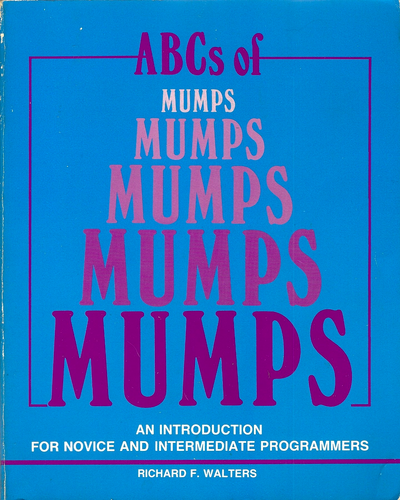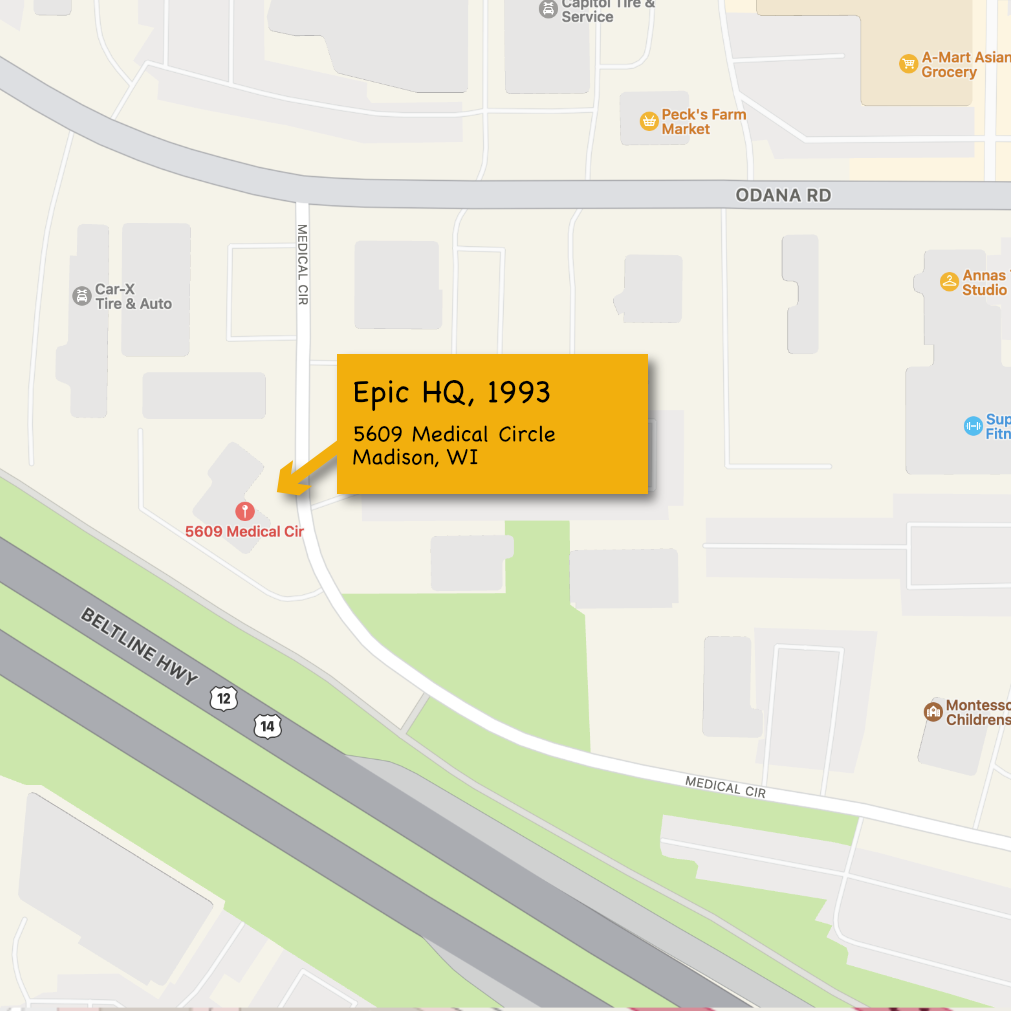The Job Search, Part 2
Contents
If you haven’t read part 1, start there instead.
An Interview with Epic
It was about a week later that I spotted a job in a Madison, Wisconsin newspaper from a company: EPIC SYSTEMS CORPORATION.
The advertisement was very Epic like and left out a lot of details, but they were searching for software developers. Given this was the pre-Internet-answers-all-your-questions days, I couldn’t find anything meaningful about them at my local library (yes, I tried!). But, it was a software development job so I sent my resume in. The job advertisement wasn’t so bad that the opportunity sounded terrible in any way, it just lacked detail.
I got a call about a week later from an Epic employee and went through some basic phone-screening type questions (I honestly don’t remember who phone screened me which I feel bad about!). That phone screen proceeded into an in-person interview (I think there was a follow-up call for this). I was told that my interview afternoon would be a mix of in-person and some test taking. Nervous, but job-needy, I agreed on a time and date.
Anyone who’s worked at Epic or who has applied to Epic knows the drill. While the specifics have changed over the years, the core hasn’t. You’re paraded around, meet some people who mostly just talk about their day and what they do, you’re asked some questions (full well knowing that you’ve only been to college, so the questions aren’t very deep), and then you TAKE A TEST (or two or three).
As I mentioned, the specific tests have of course changed many times but the spirit hasn’t. Back then, the first test was basically a programming language comprehension test for what seemed like it must be a made up programming language; this programming language had some peculiar traits and definitely wasn’t familiar.
It wasn’t till I was hired and started learning the programming language MUMPS (also known as M, AKA Caché Object Script, etc.) that it was clear that one of the tests covered a “must be a made-up programming language” was in fact heavily inspired by MUMPS (and a spiritual predecessor MIIS that Epic had used). The second test was more traditional, presenting a series of questions that needed to be hand-coded in a programming language of my choice. I know I chose C as it was something I was familiar with at the time. The other programming languages I knew at the time would have hardly impressed the Epic test-graders.

One often-forgotten aspect regarding the Epic programming tests is that there’s a mix of speed and accuracy that plays into the final evaluation. Fast and highly accurate is most desirable of course. They don’t tell you this and even if you know it, how it affects your behavior may not change. Being fast with poor code isn’t a great way to land a job generally speaking.
I know that I spent an extraordinary amount of time reviewing my code since I was told I had something like 3 hours to complete the work. I’m sure on pass number three through my code that it wasn’t time well spent. But, I didn’t know that I was being measured on time as well. In hindsight, I should have considered it and only made one or two passes.
A week later, a second call! I’d done OK on the tests. They’d like me to come back in and do another round of interviews with some team leaders and managers. I was excited. As my schedule was wide open, I scheduled it for as soon as they could make it work.

Upon arriving at the then HQ of Epic on Medical Circle Drive in Madison, I was told that it was customary to do an interview with the founder of Epic, but she was traveling on a sales trip that day. I can’t say that I was disappointed by that as the very idea had made me nervous.
I met with 5 team leaders from around Epic on that second interview day. They only had about 8 at the time, so I met most of them that were in R&D. Everyone was pleasant and didn’t ask any tough questions.
Except for one.
She’d gotten her playbook straight from the interviewing books I think. (You’ll find out more about her later and why this became funnier over the years).
“Why do you want this job?”
I’m usually open and direct with others. I suppose I could have come up with a line of crap. But, that’s not me. I’d rather be honest. I took a risk.
Be Thoughtfully Honest
I just want a job.
Aaron, July 1993
That was honest. My internal warning systems flashed for a moment, but dimmed. But, it was the truth. Through all the interviews and testing, I really didn’t have a good picture of what I’d be doing at Epic if I got the job and it wasn’t clear what software they needed help with. All these years later and I still remember sitting there in the small Rosewood conference room saying that.
Epic commonly places employees on teams after interviewing successfully unless a specific request for a team or work is approved. I’m not faulting them for not telling me, but the actual things that they were doing didn’t make much sense to me as I’d had zero experience with “healthcare software.” I couldn’t get excited about a particular application or piece of functionality.
“My gosh, insurance billing software challenges sounds like keen fun.”
That’s just not something you’d hear me say without a giggle. (While there are definitely some technical and algorithmic challenges dealing with mass amounts of data in a timely fashion—billing software is just not my normal cup of tea).
Now, I’m generally “fast on my feet” and added something jokingly about how my parents wanted me to start working soon anyplace, and yadda yadda. I did think to add “I don’t care as long as it’s a programming job–that’s what I’m interested in.”
She wrote down my response. I could tell that she wasn’t prepared for my honesty by her reaction. My final interview was with the TL of the Resolute billing team. The interview was fine, but again, she failed to convey what the team needed and was doing to this recent college graduate. (Again, I don’t fault any of them for failing to do this well, the products are complex and difficult to discuss with an outsider in 30 minutes and have time for back and forth questions). Remember, these were green-screen style terminal applications that Epic was selling at the time, so showing working software wasn’t particularly compelling either.
Sometimes Dumb Timing Happens
Shortly after my second interview with Epic, I received a phone call from State Farm Insurance, at the time headquartered in Bloomington, Illinois. Having attended my university in that same city, I knew where their corporate campus was and the influence they had on the local community. They had a lot of employees — doing whatever insurance companies do (heck, I know generally, but I don’t know why they have so many employees).
I’ll talk more about this in my next post.
Question
If you took an Epic programming test, what programming language did you use? Was it hand-written or online? Did you ever learn your score?
